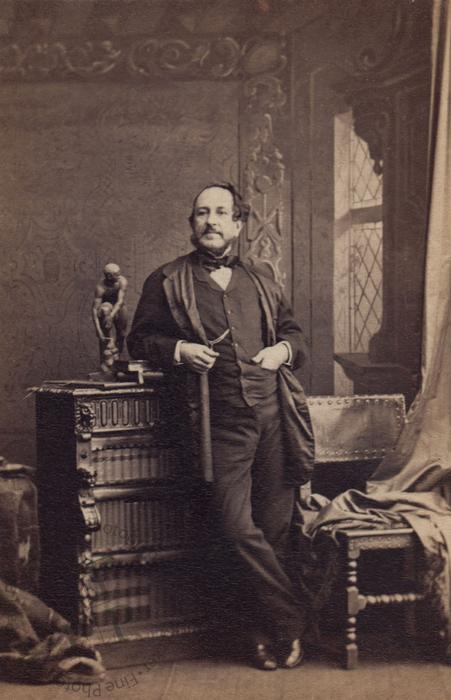Signor Schira
(1809-1883)
29 October 1861
Volume 5, page 191, sitting number 6259.
The Italian composer Francesco Schira appears on the 1861 census living at 48 Queen Anne Street in Marylebone. He gave Italy as his place of birth, and his profession as 'Musical Composer and Professor of Singing.' At the time of the census, he was apparently 46, which would mean he was born in or about 1815. However, when he died in 1883, his age at time of death was registered as 74, which would mean he was born in or about 1809.
He died in London on 15 October 1883 at his residence in Welbeck Street (The Graphic, 20 October 1883.
According to the Grove Dictionary of Music Schira was born in Malta, not Italy, and his date of birth was 21 August 1809. The same source states:
'After a brief visit to Paris in 1842, Schira was appointed director of music at the newly opened Princess's Theatre in London. In 1843 he conducted a short season under Alfred Bunn's management at Covent Garden, and in the following year joined Bunn at Drury Lane on the resignation of Benedict as conductor. He remained there intermittently until 1847, conducting both foreign adaptations and a number of English operas. The orchestra at the time was said to be indifferent and the Illustrated London News was less than impressed with Bunn's parsimony and Schira's conducting ability (27 September 1845). In 1848 Bunn again managed a three-month season at Covent Garden, with Schira conducting and Sims Reeves making his début at the theatre. Schira's opera Kenilworth, after Scott, was rehearsed but not produced, but the Princess’s Theatre gave well-received productions of his operas Mina in 1849 and Thérèse, or The Orphan of Geneva in 1850.
'Schira conducted Bunn's 1852 season at Drury Lane, but thereafter he devoted himself to teaching singing (his most famous pupil was Louisa Pyne), while continuing to compose. His opera Niccolò de' Lapi was produced at Her Majesty's Theatre in 1863. In 1875 in Venice he achieved his greatest success with the first complete production of Selvaggia, but after Lia (orginally composed for Naples in 1865) in 1876 he composed no more. He was totally opposed to any style other than the Italian. [...] Despite his narrow musical tastes, Schira was, after Verdi, one of the outstanding Italian opera composers of his generation.'

